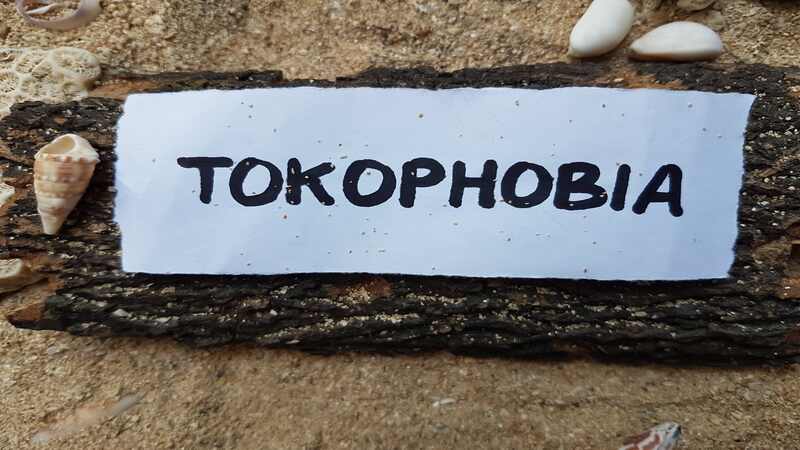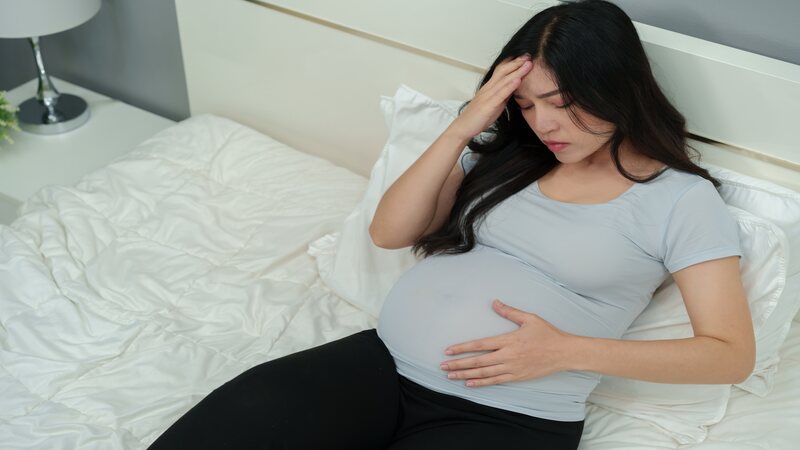
Tokophobia, the deep-rooted fear of giving birth, affects countless women worldwide. It’s normal to worry a bit about childbirth, but tokophobia goes way beyond that. This fear can mess with a woman’s life causing extreme stress. Some women might avoid getting pregnant altogether, while others might opt for planned C-sections or spend their entire pregnancy feeling super anxious. This fear can pop up for different reasons.
Some women might have had a scary birth experience before, while others might have heard horror stories about childbirth. Sometimes, it’s linked to other anxiety issues a woman might have. No matter where it comes from, tokophobia is no joke. It needs to be taken , and women dealing with it need support and understanding. Tackling this fear head-on is key to help women have a positive and empowering experience when they give birth.
What is Tokophobia?

Tokophobia refers to a fear of childbirth that is persistent, and it can have significant effects on an individual’s life. This fear can be so powerful that some people may even choose not to get pregnant at all even when they want children. Unlike typical worries around childbirth, tokophobia doesn’t disappear with soothing words and may hinder day-to-day activities (1).
Types of Tokophobia
Tokophobia has an impact on some women causing them to fear giving birth . To tackle this issue , it helps to understand its types. We can divide it into two main categories:
Primary Tokophobia
This type affects women who have never been pregnant and have a b fear of giving birth often starting when they’re young. It’s okay to feel anxious about getting pregnant. Take your time and look into all your choices. Many women beat this fear and end up having good birth experiences with the right help.
Secondary Tokophobia
This happens to women who’ve had a tough or traumatic time with a previous pregnancy or childbirth. It’s normal to feel scared about trying again if you’ve had a hard birth before. But with good care and support many women heal and gain the confidence to face childbirth in a positive way (2).
Keep in mind, you’re not alone, and you can manage these fears with the right help and resources.
How To Know If I Have Tokophobia?

Tokophobia brings about severe anxiety concerning childbirth in women, often leading to nightmares, sleep interruptions, panic episodes, and other forms of not wanting anything that relates to pregnancy at all. Secondary tokophobia is the most prevalent type for those who have gone through distressing or traumatic labor situations before. If you are planning on getting pregnant and you experience these fears then you need to be aware that assistance exists to make the journey easier (3).
Causes of Tokophobia
Tokophobia may be caused by different factors that result in excessive fear of giving birth. By understanding these causes, you will be able to manage and address this fear better.
Hormonal Changes
It is through the body’s stress and anxiety hormones that childbirth might appear so frightening at times due to hormonal shifts. This anxiety causes people to have intense fears or apprehensions regarding these processes.
Influence from Others
Traumatic or negative birth experiences told by friends, family or even (4) through different types of media can intensify personal fears. Such stories often create unrealistic expectations which only end up increasing the level of anxiety about your own experience during childbirth (5).
Concerns about Medical Care
Worries on how one will cope with pain during delivery or live without control over one’s body will also play a part in building up on apprehension levels. Lack of faith on whether pain management works and about the competence of healthcare providers makes it daunting when thinking about having babies.
Personal Factors
Age group, education background, and social issues related to childbearing. Younger people having low level educations faced with poor social conditions are likely to have more anxiety than those who are older or have higher educational qualifications; thus, feeling is determined by factors influencing insecurity and fear which makes them regard motherhood as a threatening phenomenon.
Mental Health
The anxiety of childbirth can be made worse by deep-seated personal problems such as low self-esteem, past trauma or pre-existing mental health conditions like depression and anxiety. These psychological factors can amplify fears and concerns, thus influencing a person’s perception of the birthing process in general (2a).
Symptoms of Tokophobia

Tokophobia, intense fear of childbirth can lead to both emotional and physical symptoms. Knowing these signs can help you reach out for help:
- Intense Fear: Being overly afraid of getting pregnant or giving birth.
- Avoidance: Avoiding everything that has anything to do with having babies like talking about them, looking at their photos, etc.
- Sleep Problems: Trouble sleeping at night, having nightmares about giving birth (6).
- Panic Attacks: Sudden feeling of panic or experiencing physical sensations such as heart racing.
- Physical Reactions: Feeling sick or faint while imagining giving birth.
- Preference for C-Section: Wanting a cesarean section instead of going through labor pains.
- Feelings of Depression: Being in a low mood or feeling depressed due to fear of childbirth (7).
How is Tokophobia Diagnosed
Diagnosis of tokophobia is done by health care professionals who will first discuss your specific fears and how they are affecting your day-to-day life. In doing so, they will conduct a mental health assessment to rule out other anxiety issues. Simple questionnaires could be given for assessing the intensity of your fear of giving birth. They will also go through your medical history to check on any traumatic childbirth experiences that may be related to your fear. Other symptoms which may allow them to confirm the diagnosis include panic attacks, nightmares or even avoidance of pregnancy-related topics (8) (9) .
How Is Tokophobia Treated ?

Treatment of tokophobia depends on the degree of fear, Each treatment program incorporates elements specific to the individual need, reduces fear, and enhances the experience of childbirth. It can be done through:
- Counseling and Therapy: This method lessens the fear of childbirth because CBT changes women’s negative thought patterns and helps them develop coping strategies (10).
- Supportive Care: An understanding and empathetic healthcare team, Psychiatrists, psychologists, and obstetricians can help in this way by providing reassurance and information and a safe space where one could discuss her fears and have them addressed (11).
- Medication: Some doctors prescribe anti-anxiety medications. If anxiety is severe, even antidepressants may be given. It is usually done when other treatments prove inadequate
- Alternative Therapies: Meditation, yoga, and hypnotherapy are sometimes suggested to reduce anxiety and facilitate relaxation during pregnancy (12).
- Education and Preparation: Childbirth education classes can help decrease fear by making the experience of labor and delivery clearly understood, so it may not seem quite so overwhelming (13).
Tokophobia, or fear of giving birth, may be very critical to a person’s well-being and decisions related to pregnancy. Therefore, it is important to spot the symptoms and find out the root cause in order to deal with this fear. Fortunately, it can be treated with a host of therapies and supportive care, coupled with educational resources. Help from healthcare professionals can equip one with strategies to cope with and overcome this fear of birth if it is managed properly, which means approaching the process of childbirth more positively and informedly.
FAQ’s
1. What Is The Fear Of Being Pregnant And Giving Birth?
The fear of becoming pregnant and then giving birth to a child is called tokophobia. It is, in itself, excessive anxiety or intense fear regarding the process of birth or pregnancy. It may majorly affect the well-being of a person.
2. What Is The Fear Of Giving Birth Called?
The fear of giving birth is referred to as tokophobia. This may project much anxiety and fear related to labor and delivery.
3. Why Am I Scared Of Delivery?
Fear of delivery can be embedded in a variety of areas, from prior birth trauma to negative birth stories others have shared. Some may involve medical care, hormonal changes, or even anxiety disorders. Such fears must be shared with health providers to work out how to overcome them effectively.
4. Can Tokophobia Be Treated?
Yes, tokophobia can be treated. These range from common treatments like cognitive-behavioral therapy and care from professional health people to medications in cases of acute anxiety, childbirth education classes, and alternative therapies like meditation or hypnotherapy. Seeking help from mental health professionals or counselors helps in getting support and strategies for the management of the fear effectively.
Reference
- Demšar, Karin, Svetina, Matija, Verdenik, Ivan, Tul, Natasa, Blickstein, Isaac and Globevnik Velikonja, Vislava. “Tokophobia (fear of childbirth): prevalence and risk factors” Journal of Perinatal Medicine, vol. 46, no. 2, 2018, pp. 151-154. – https://www.degruyter.com/document/doi/10.1515/jpm-2016-0282/html#
- Bhatia MS, Jhanjee A. Tokophobia: A dread of pregnancy. Ind Psychiatry J. 2012 Jul;21(2):158-9. – https://www.ncbi.nlm.nih.gov/pmc/articles/PMC3830168/#
- Mudit Bhardwaj,Aashutosh Sinwal,Vishv Sagar Sharma,Smrithimol Baby ; School of Pharmaceutical Sciences, Jaipur National University, Jaipur, Rajasthan, India – https://www.ijrcog.org/index.php/ijrcog/article/view/13963#
- Terhi Saisto and Erja Halmesmäki, From the Department of Obstetrics and Gynecology, Helsinki University Central Hospital, Helsinki, Finland – https://www.tandfonline.com/doi/abs/10.1080/j.1600-0412.2003.00114.x#
- Hanna-Leena Melender, Fears and coping strategies associated with pregnancy and childbirth in finland,
Journal of Midwifery & Women’s Health, Volume 47, Issue 4, 2002, Pages 256-263 – https://www.sciencedirect.com/science/article/abs/pii/S1526952302002635# - Aguilera‐Martín Á, Gálvez‐Lara M, Blanco‐Ruiz M, García‐Torres F. (2021) Psychological, educational, and alternative interventions for reducing fear of childbirth in pregnant women: a systematic review. J Clin Psychol. 77(3):525-555 – https://www.nct.org.uk/pregnancy/how-you-might-be-feeling/fear-childbirth-and-tokophobia
- Hofberg K, Ward MR. Fear of pregnancy and childbirth. Postgrad Med J. 2003 Sep;79(935):505-10, quiz 508-10 – https://www.ncbi.nlm.nih.gov/pmc/articles/PMC1742837/
- Lisa Chorzempa-Schainis, MD, Obstetrics & Gynecology, Elmhurst Memorial Medical Group – https://www.eehealth.org/blog/2017/08/tokophobia-fear-of-childbirth/#
- K. WijmaUnit of Medical Psychology, Department of Nuclear and Clinical Medicine, Faculty of Health Sciences, Linköping University, S-58185, Linköping, Sweden – https://www.tandfonline.com/doi/abs/10.3109/01674820309039667?src=recsys
- Colin R. Martin, Catriona Jones, Claire Marshall, Julie Jomeen, Chapter 4 – Childbirth-related fear tokophobia, and cognitive behavioral therapy, Editor(s): Colin R. Martin, Vinood B. Patel, Victor R. Preedy,
Handbook of Lifespan Cognitive Behavioral Therapy, Academic Press, 2023, Pages 41-51 – https://www.sciencedirect.com/science/article/abs/pii/B9780323857574000432 - American College of Obstetricians and Gynecologists, Anxiety and Pregnancy: Learning the Symptoms and Finding Help – https://www.acog.org/womens-health/infographics/anxiety-and-pregnancy-learning-the-symptoms-and-finding-help
- The National Center for Complementary and Integrative Health, Anxiety and Complementary Health Approaches: What the Science Says – https://www.nccih.nih.gov/health/providers/digest/anxiety-and-complementary-health-approaches-science
- American Pregnancy Association, Childbirth Education Classes – https://americanpregnancy.org/healthy-pregnancy/labor-and-birth/childbirth-education-classes/

